When Skyward Sword was released, Legend of Zelda was in the midst of celebrating its 25th anniversary. Fans were in a hopeful frenzy. Our beloved series had made it to the quarter-century mark, Nintendo was bringing us an innovative new entry as a special anniversary present, and every fan I knew was bursting at the seams with excitement, foaming at the mouth to play what would certainly be the best Zelda game yet.
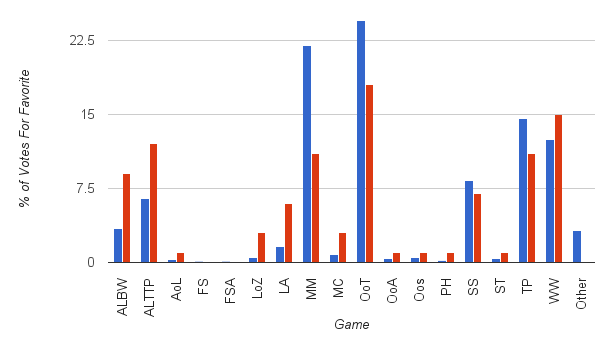
But Skyward Sword, as it turns out, was not the best Zelda game yet, at least not in the eyes of the community as a whole. Examining a variety of sources indicates how muddled opinions on the title are. Data from Zelda Data (blue) [ed. note: This website no longer exists] and Nintendo Life (red) polls on fans' favorite games indicate it's pretty well-liked, but not as favored as the other 3D Zelda titles. But the many positive critical reviews listed on the official site, including Richard George's piece for IGN that awarded it a 10 out of 10 and the dangerously bold assertion that "Ocarina of Time [sic] has met its match," describe a game that should've at least threatened Ocarina's lead in those polls, and yet there's forum post after YouTube review figuratively dunking the game into a trashcan. Quite frankly, fans were (and still are) split on the game. Some adore it, some revile it, and the distance between those two camps is fairly barren, with few fans outspokenly staking a claim there.
It makes sense to me that the Zelda community was split so deeply in half. Skyward Sword was hyped up and presented as this glittering centerpiece of the 25th anniversary, and because of all the hype, people expected a lot of it, especially those who held the franchise close to their hearts. In reality, games don't suddenly become gems just because their franchise is celebrating a milestone, but regardless of whether fans were aware of their unusually high expectations for it or not, it likely affected how they viewed the game soon after its initial release.
Some players may have been head over heels for the game because of their excitement and dedication to the series, as love certainly can be blinding. Others may have caught on that Skyward Sword was just another Zelda game, but, judging its worth on a baseline skewed by anniversary hype, or maybe even feeling a little betrayed, came to the same conclusion Arin "Egoraptor" Hanson (rather angrily) shared in one episode of Sequelitis:
"You [Skyward Sword ] want all this attention like you care, like you really gave it your all in a 'new innovative Zelda experience' ... You're like a spoiled rich kid who gets everything bought for you your entire life, and then when it comes to making it on your own, you can't take it. You expect everyone to love you because you are who are you, part of the illustrious Zelda lineage. Nothing could possibly be wrong with you! You look just like a Zelda ! ... Why would you need to improve! Why would you need to get any better! Everyone just agrees with your shitty ideas because you're a Zelda."
Put more simply, Hanson feels, like many others, that Skyward Sword fell flat and didn't live up to the rest of the games in the franchise, but received undeserved praise anyway on the basis of its Zelda status. Do I agree with this position? Not exactly. I do think that some players were blinded by their loyalty to the franchise and gave it more praise than it should have been given, yes, but I do not believe it's a disappointment to Zelda. I suspect that Hanson, too, judged Skyward Sword with unusually high expectations. While it certainly does deserve some heavy criticism (and I'll get to that, don't worry), Skyward Sword doesn't deserve the blistering hatred it receives from some fans, and now that five years have passed since its initial release, I think it's a good time to reexamine the game without the 25th anniversary hype muddying the waters -- so let's dive right in.
One of the most notable things about Skyward Sword is how much it expands beyond Zelda norms, introducing plenty of interesting, unique things that haven't appeared in previous titles, and many of these work pretty well. Players get to try out a few interesting new items, hunt down a variety of bugs, upgrade the potions they buy, and stash bombs they find growing while out adventuring, all of which are nice touches that don't confuse long-time players.
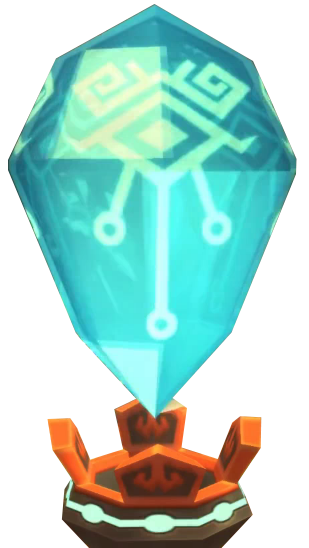
The best mechanics introduced in Skyward Sword, however, are timeshift stones and silent realms. Timeshift stones, once struck, bring the player back to the past -- but only in a limited area around the stones. It's a very creative mechanic that ties into the franchise’s old love affair with the flow of time and its manipulation, and puts a new twist on the concept, allowing players to quickly and easily access a new version of the area they're in for exploration, puzzles, and an overall deeper gameplay experience. They aren't overused throughout the game, either, and appear only in one province. Similarly, silent realms are a rare occurrence in the game. They fit in perfectly when they do pop up, creating a level of intensity rarely found in other Zelda games in order to (quite effectively) test Link's heroic qualities by scattering things for him to hunt down in a high-stress environment. They're a challenge unlike any other I've seen in Zelda.
Unfortunately, few other mechanics work that well. There are plenty that are absolute nightmares, effectively burying the good in Skyward Sword under the bad they bring into the equation. Many don't work because, while they sound perfect on paper, they aren't fully fleshed out. Boss key puzzles, goddess walls, goddess cubes, medals that help you find items only slightly more effectively, item upgrades that you can go the whole game without needing once, the over-used and clunky dowsing ability, the clever but too-short stamina meter -- they all could have turned out much better had they been more carefully thought out and woven into the game more fluidly. There's lots of great ideas in Skyward Sword, but they didn't get quite the attention needed to fit into the game properly, and the game as a whole suffers for it.
Another roadblock many cool-sounding mechanics run into is Nintendo's insistence on using motion controls as much as possible in Skyward Sword. Motion controls are a defining aspect of the game, and Nintendo took a risk using them so extensively, and it really didn't pan out -- on top of hardly working, motion controls turned mechanics that could've been interesting into lackluster chores. The harp and flying mechanics highlight this best. The harp could have been fun, or at least engaging, but it consists of just swinging your arm back and forth in time, and feels basically useless. Flying, while initially as awe-inspiring as you would hope soaring through the sky would be quickly loses its appeal because the controls are weird and clunky. When it comes down to it, both would have been better off had motion-controls not been shoehorned in.
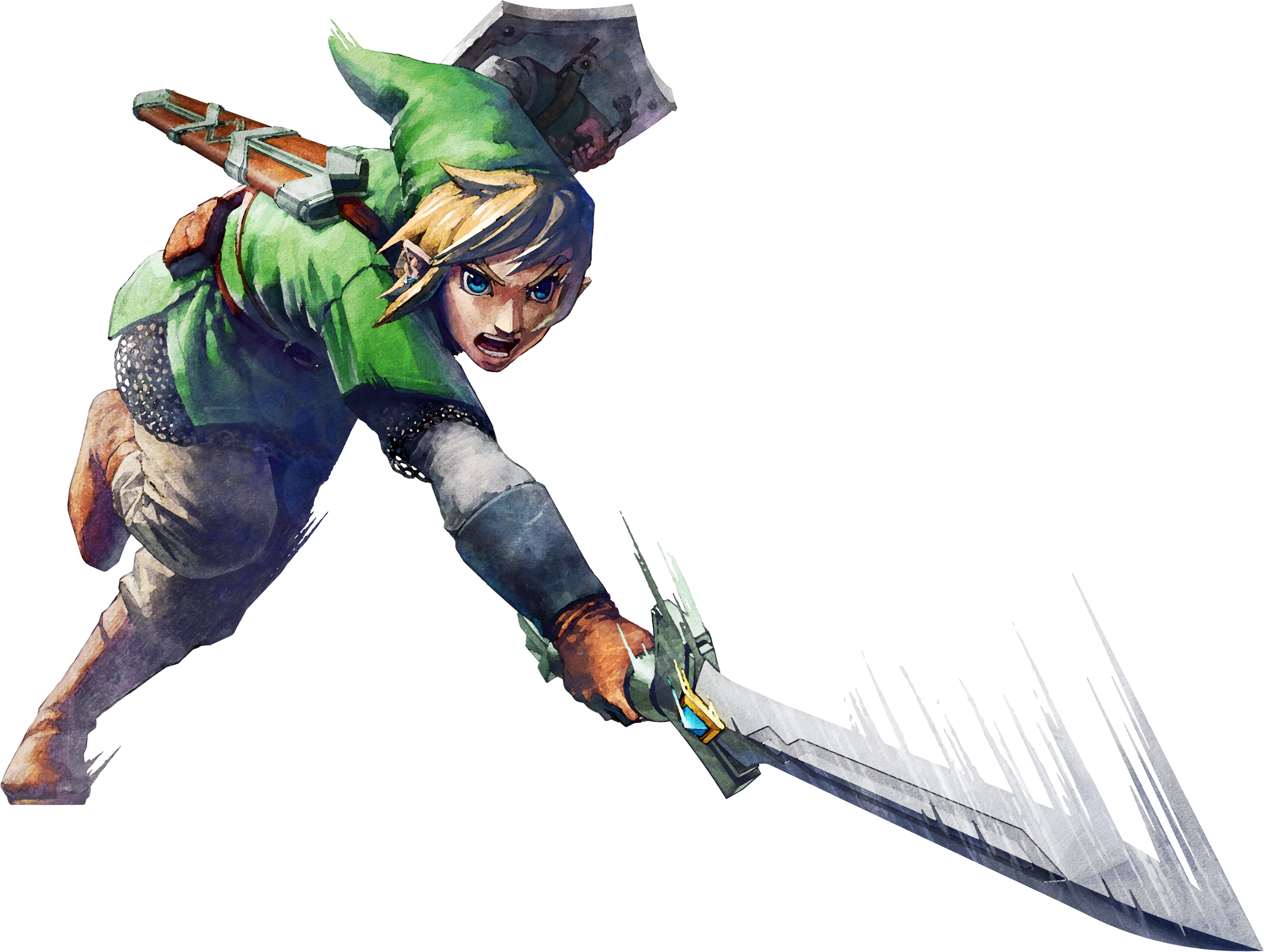
The biggest motion control-based letdown in Skyward Sword, however, is the combat. Remember how I mentioned there were some cool, unique items to try out? Well, they don't integrate well at all with combat, so players are stuck with their sword most of the time, and what a shame that is. Swordplay relies entirely on motion controls, reducing the vast majority of battles, whether the enemy is a puny minion or a big bad boss, to just slashing the right direction, which doesn't work most of the time (especially if you're using an older controller). Enemy designs don't even spice things up -- across areas, the same enemies reappear with slightly different appearances and abilities, but are ultimately bland copies. Even bosses are hardly memorable (barring Koloktos, one of the most interesting and engaging bosses I've run into in a Zelda game, and the final bosses). It gets boring when your controller does work, and it gets frustrating when your controller doesn't -- either way, the reliance on motion controls makes Skyward Sword's combat a lose-lose situation. Even if it was fun or functioning, the nature of combat could present some accessibility problems that prevent players from being able to even really play in the first place, and it has to be at least a little confusing for lefties. Here's hoping this kind of combat never shows up in a Zelda game again.
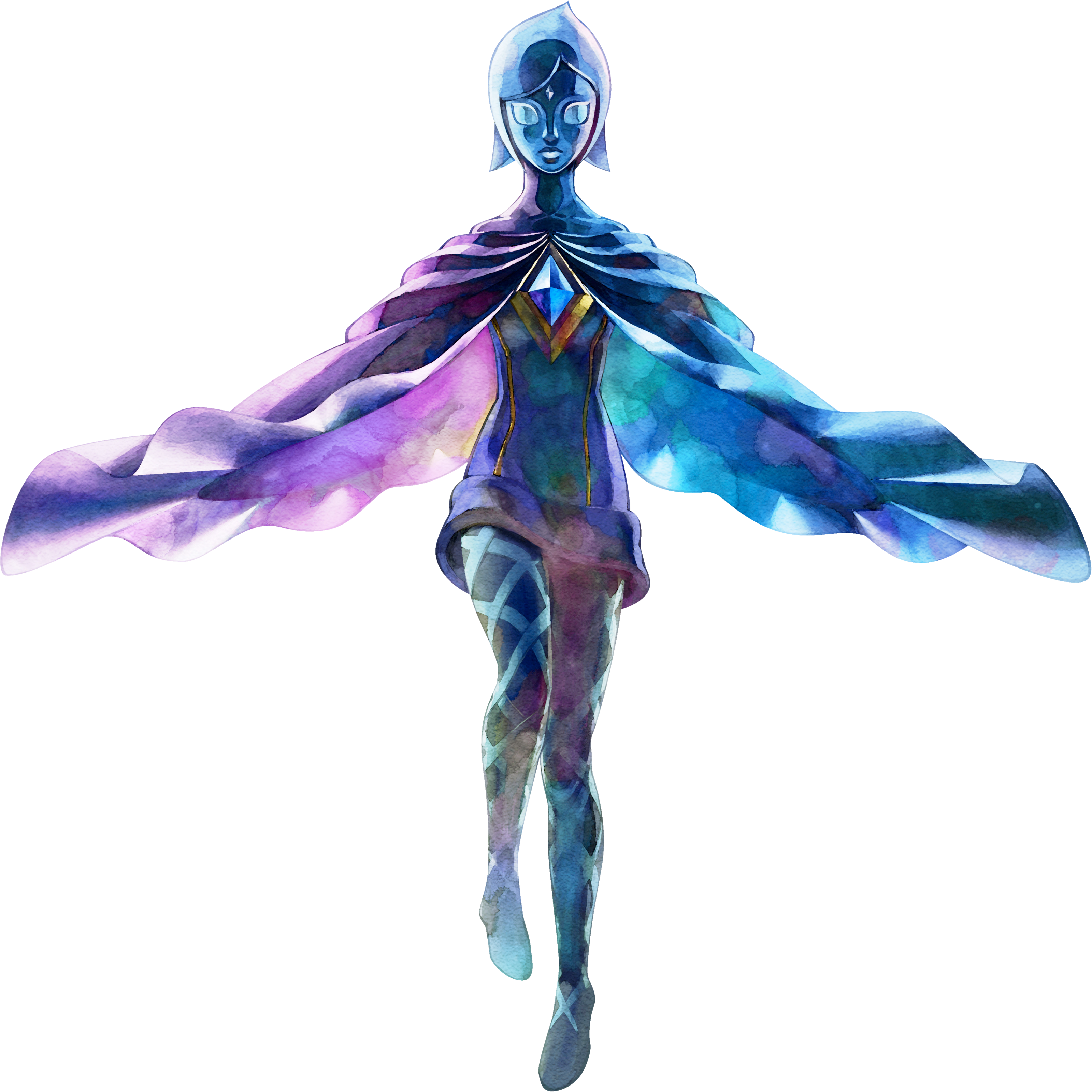
If you can stomach the combat and generally disappointing mechanics, there's still more to deal with. The hand-holding is beyond even what new and inexperienced players want or need. I'm all for making games accessible and easier for new players or even experienced players who just want to have fun. Everyone has different abilities and reasons for playing video games, and helping players out isn't a bad thing! Skyward Sword just doesn't handle it properly. There are plenty of ways to seek help out if you need it (gossip stones, the fortune teller, and a companion that will give you hints or a refresher on what's going on if you ask for it) that are explained clearly and easy to access. They're more than enough to help players that want or need them! On top of that, though, Link's companion, Fi, excessively points out things that have already been shown or outright explained. She's more than enough to ruin the game for several players I've talked to, and though I find her endearing and not that annoying, I don't blame them. Sometimes you just want to play, and she gets in the way of that.
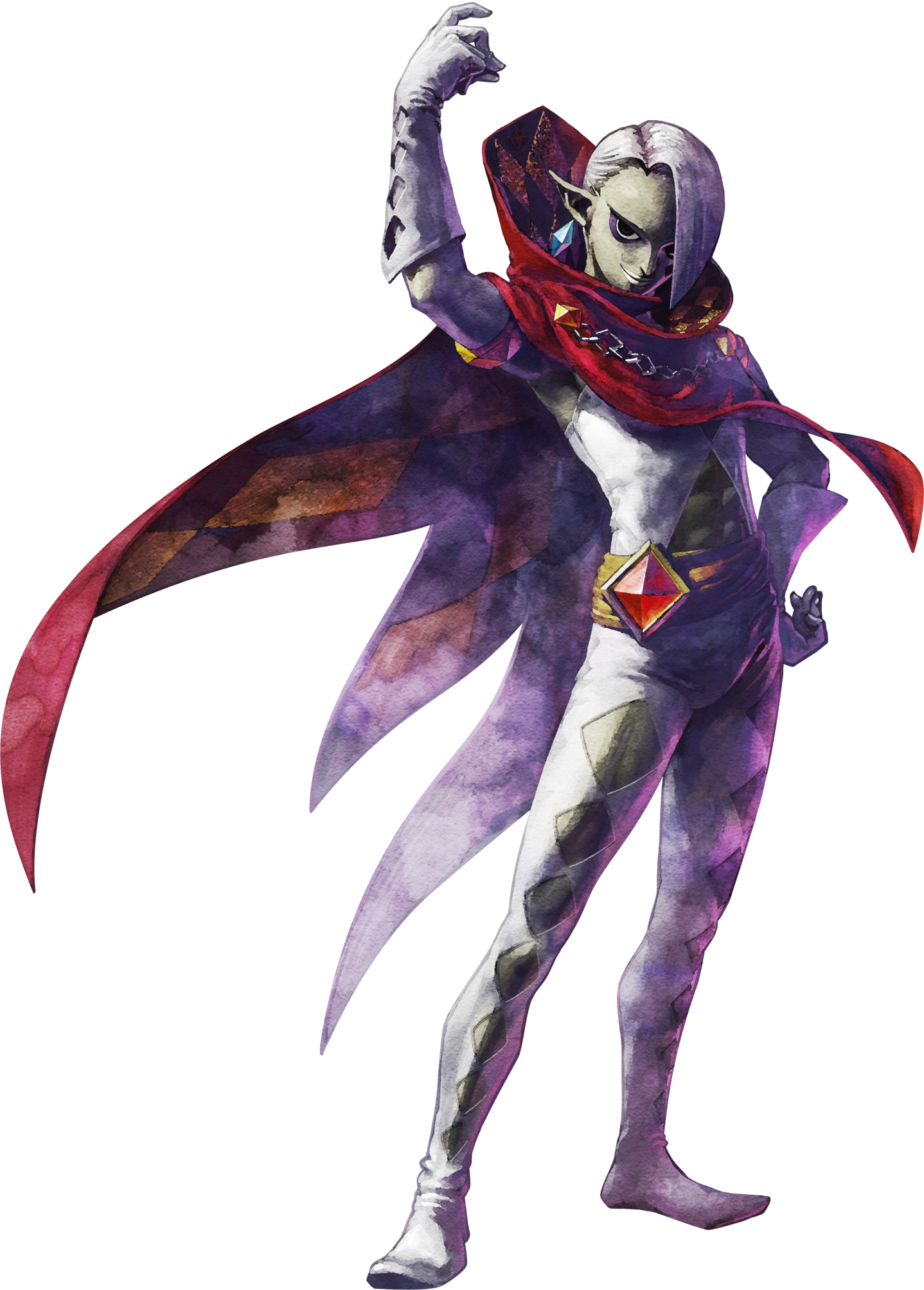
One of the final major issues I have with Skyward Sword is with one of the primary antagonists, Ghirahim. For starters, he feels fairly ineffective as a villain. He's pretty cocky and aristocratic, which is mostly just annoying, and he doesn't seem particularly good at keeping Link out of his way. Often he leaves the player with threats that he'll definitely get them next time, this time was just for fun, obviously. In general, he feels unconvincing as a real threat to Link. He's comparable to a buzzing fly that knows how to use a sword.
Beyond this, Ghirahim feels distinctly queer-coded. Whether it was intentional or not on the developers' part, the men-loving men I've spoken to about it agree he feels distinctly coded as a gay man, and the jokes that have always circulated through the Zelda fandom about how "fabulous" the effeminate demon lord is speak for themselves. While LGBT representation in a well-established franchise like Legend of Zelda sounds great, Ghirahim's queer-coding looks less like representation and more like another example of the long-standing association between LGBT characters and evil, or at least bad morals. Put quite simply, the trope of queer-coding villains (and only villains) is harmful to LGBT people because it associates being same-gender attracted or transgender with being bad, and Ghirahim is part of this trope. His queer-coding is subtle, but even if it slips under some players' radars, it is still homophobic and I'm sad to see it in a franchise I care about deeply.
On a far less serious note, the last issue I have with Skyward Sword is its soundtrack. It's less an issue and more a quiet disappointment. The game is fully orchestrated, which makes cutscenes more exciting and cinematic, but other than a few memorable pieces (you can listen to my top 10 tracks from the game here) [ed. note: this website no longer exists] most of the tracks are pretty homogeneous and not particularly memorable. It's also worth noting, however, that the themes do fit the areas and situations they occur in, and the subtle shifting of music between areas, most notably between the past and current time when using timeshift stones, is a very nice touch. Skyward Sword's soundtrack isn't bad, but if you're expecting a more memorable Zelda score you're better off looking to the special edition CD that was released with it.
Unlike the tracks that accompany it, the game's beautiful art style is far from forgettable. In fact, it's one of the game's strongest points in my book. Skyward Sword combines the best aspects of Twilight Princess and Wind Waker's styles, and has aged very well, still looking great though the game is graphically outdated now. It's one of the best art styles I've seen in a Zelda game, and I'd love to see it show up in future titles one day.
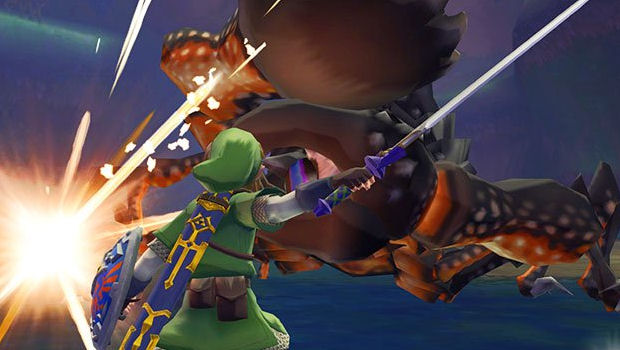
The world of Skyward Sword takes full advantage of the game's style, too. Each area is beautifully crafted and bursting with details. The sky is the exception -- Skyloft itself is a lovely, fully-fleshed out hub, but the surrounding clouds and occasional floating rocks are mostly devoid of anything interesting. Luckily, the areas below the clouds are where most of the action happens. There's lots to explore, and the game finds clever ways to reuse areas and introduce new things to explore without getting boring (that said, some players might be unhappy with the lack of completely new areas, even if the reused areas offer lots to see and do). It's good that the areas are so fleshed out, too, because there's plenty of content between dungeons.
Dungeons themselves play very well. They feature save and warp points that allow the player to save and take a break whenever needed, or to warp out and resupply with ease. Additionally, the function of the map and compass in previous Zelda titles have been combined into just the map, which is pretty nifty and saves a little bit of confusion. Outside of that, the flow throughout the dungeons is very smooth (the layouts were clearly thought through very carefully), and there's less focus on puzzling than previous games. This can be good or bad depending on what you’re looking for in the game; if you’re looking for the harder and generally more frustrating puzzles of older Zelda games, you’ll be disappointed by Skyward Sword's dungeons, but if you're not in it for the puzzles, you'll likely enjoy them.
The crowning jewel of Skyward Sword, though, is its story, which it creates through good character writing. It introduces a whole cast of characters with their own personalities that shine through in their dialogue, actions, and visual design. The main cast develops across the whole game, and no matter where they are in this development, their interactions feel realistic to their relationships and character, and serve to push the plot forward in a fluid way. Link's motivation and characterization in particular are very strong. The game creates a relationship between Link and Zelda that, whether you see it as friendship or romance (that's a fandom mess I'm not going to step into), is very caring and kind. Because of this, Zelda's disappearance is a very good motivator for Link to push forward in his quest in search of her.

It's through this excellent character writing that Skyward Sword's overarching story feels like a love letter to the franchise as a whole. This sense of wonder is further encouraged by the game's subtle undertone of lighthearted, hopeful youth and the more overt theme of dedication to a loved one and of becoming a true hero. All these pieces come together to weave a game that is very cinematic and emotionally charged, especially at the end, which feels satisfying to see come together because of the emotional weight of the events that came before. Don't get me wrong, there are still some problems even in the story. It's very cutscene-heavy, is paced oddly at the beginning, and at times feels fluffed up by unnecessary tasks and seemingly random lore for the sake of lengthening the game. Even with its faults, I still feel it's a proper "beginning" to the Zelda series and a wonderful celebration of the franchise's longevity.
Is Skyward Sword flawed? Absolutely. Is it terrible? Absolutely not. It's a fairly average game, in my book, and doesn't deserve as much crap as it gets. I'm very glad to have played through it again recently and enjoyed the majority of the time I spent playing it that wasn't made up of me fighting with my faulty Wii remote. I encourage you to pick it up again and replay it to see for yourself what it's like without the 25th anniversary hype clinging to it tightly. If you can bring yourself to deal with the controls, that is.
